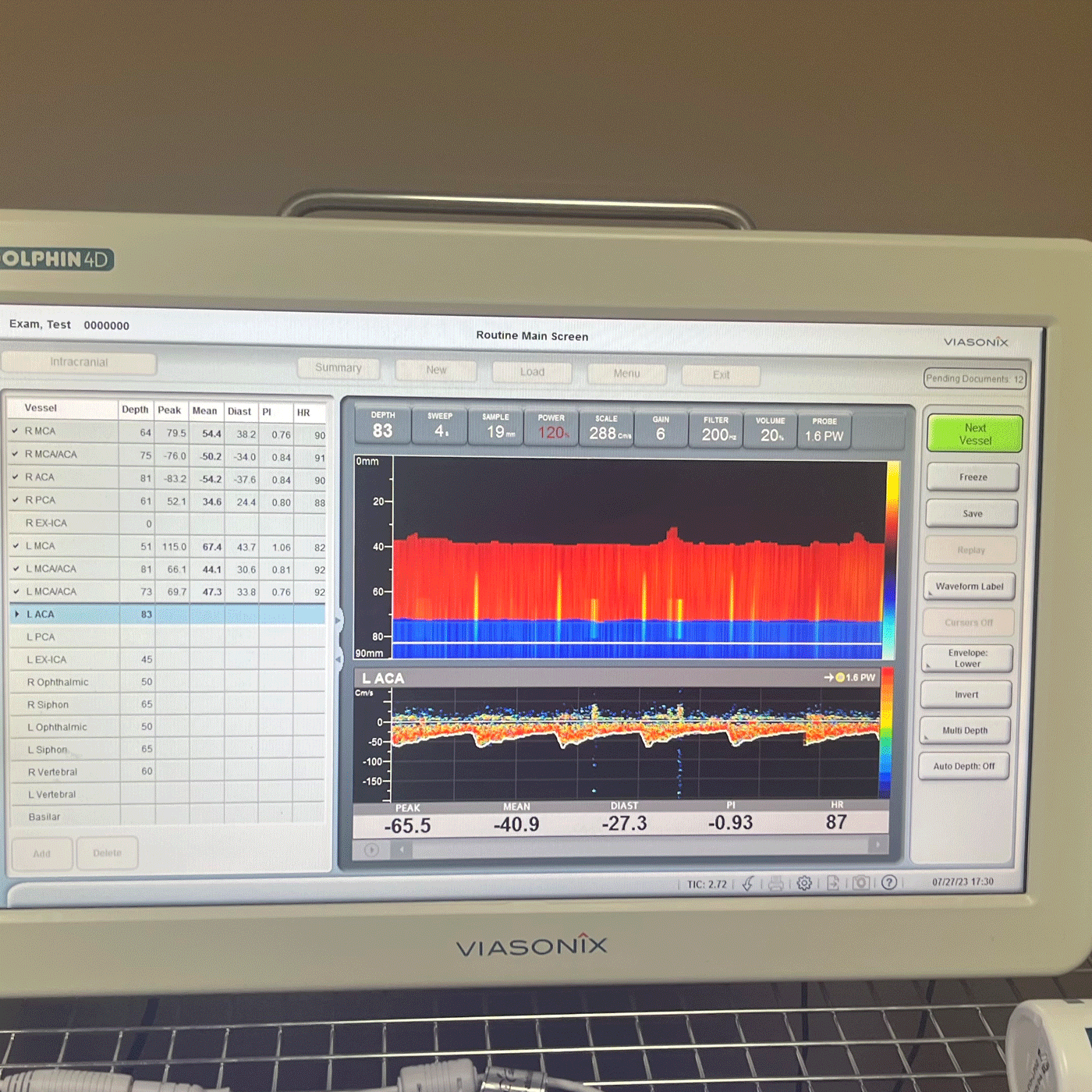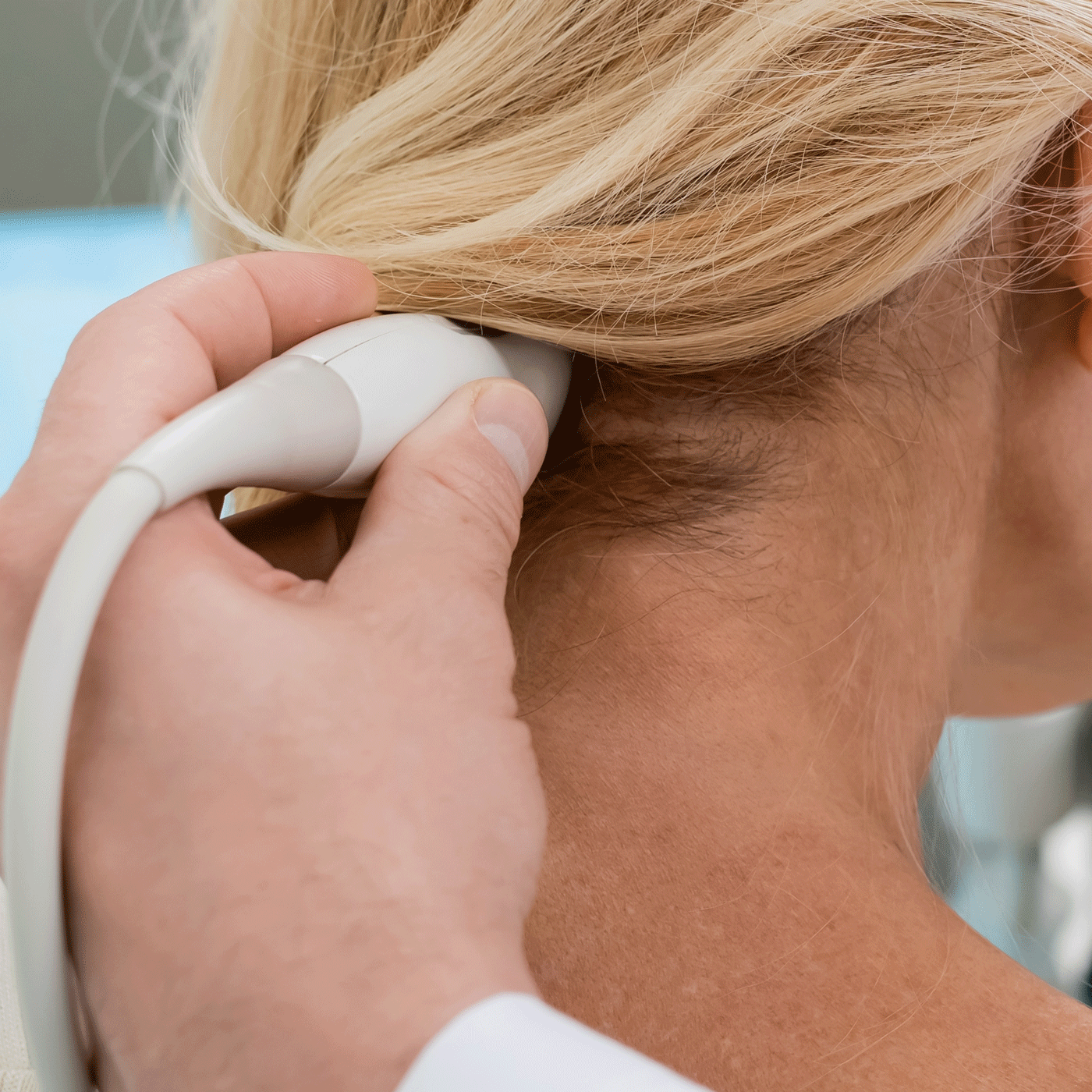Neurovascular Studies: Transcranial Dopplers (TCDs) and Carotid Ultrasounds
Transcranial Dopplers and Carotid Ultrasounds are functional and neurovascular studies of the blood flow in the vessels of the head and neck. They are used for the assessment of stenosis and occlusion in the extracranial and intracranial vessels including the Cerebral, Vertebral, Basilar, Retinal, and Carotid arteries and are used to assess the following:
- Strokes
- TIAs
- Patent foramen ovale (PFO) and to rule out cardiac embolic events
- Intractable headaches (ruling out PFO as a cause)
- Syncope / Near Syncope
- Gait Abnormalities
- Ataxia
- AMS (Altered Mental Status)
- Dementia
- Other physiological factors affecting cognitive decline


Similar to EEGs, TCDs and Carotid Ultrasounds are an excellent diagnostic tool for a wide array of patients as they do not involve any radiation, and do not interfere with any medications or treatments, and are safe for all patients, including, but not limited to, those with metal implants, claustrophobia, or those who are currently or plan to become pregnant. They can also be used in conjunction with MRA Angio studies of the Head and Neck to provide additional diagnostic clarity. Our dopplers also support repeat testing, allowing for a longitudinal monitoring of a patient’s condition, to aid in evaluating the effectiveness of interventions, and adjustment of management strategies.
CPT Codes: 93886, 93890, 93892, 93893 (TCDs), 93880 (Carotid US Bilateral)
